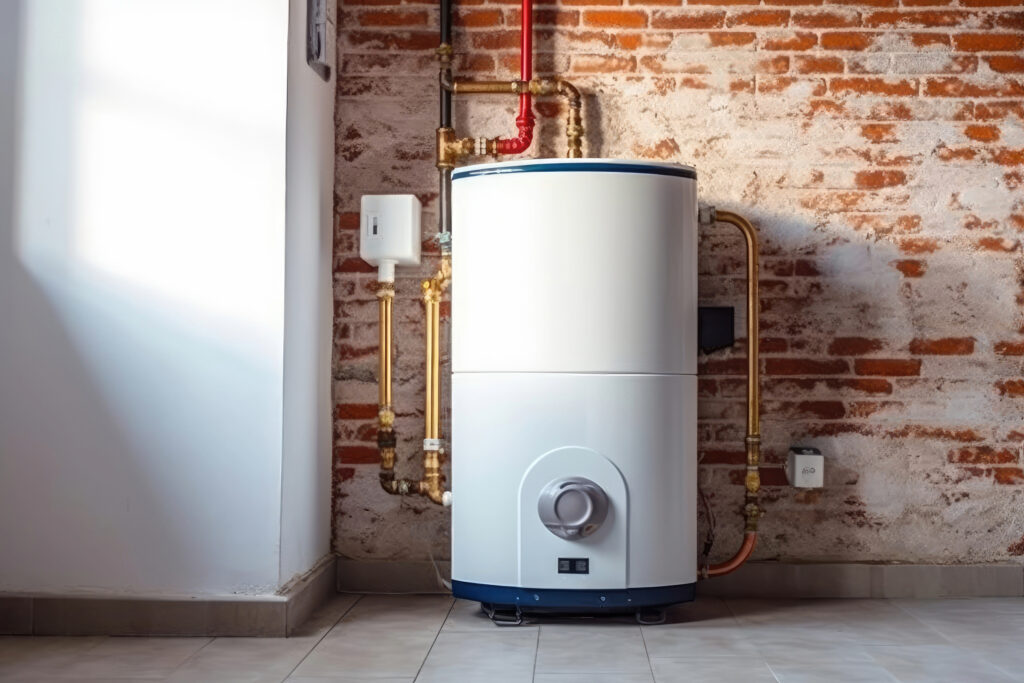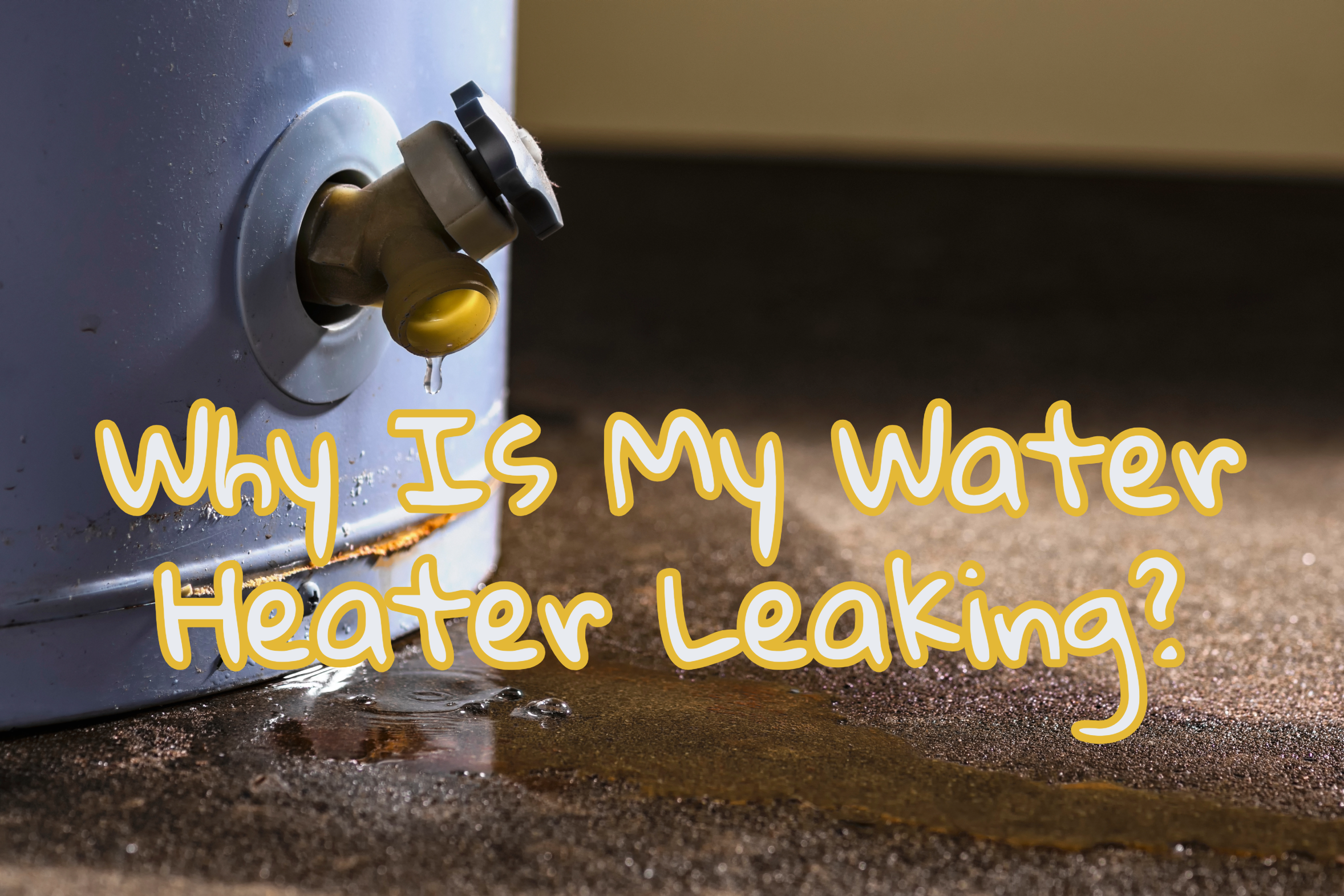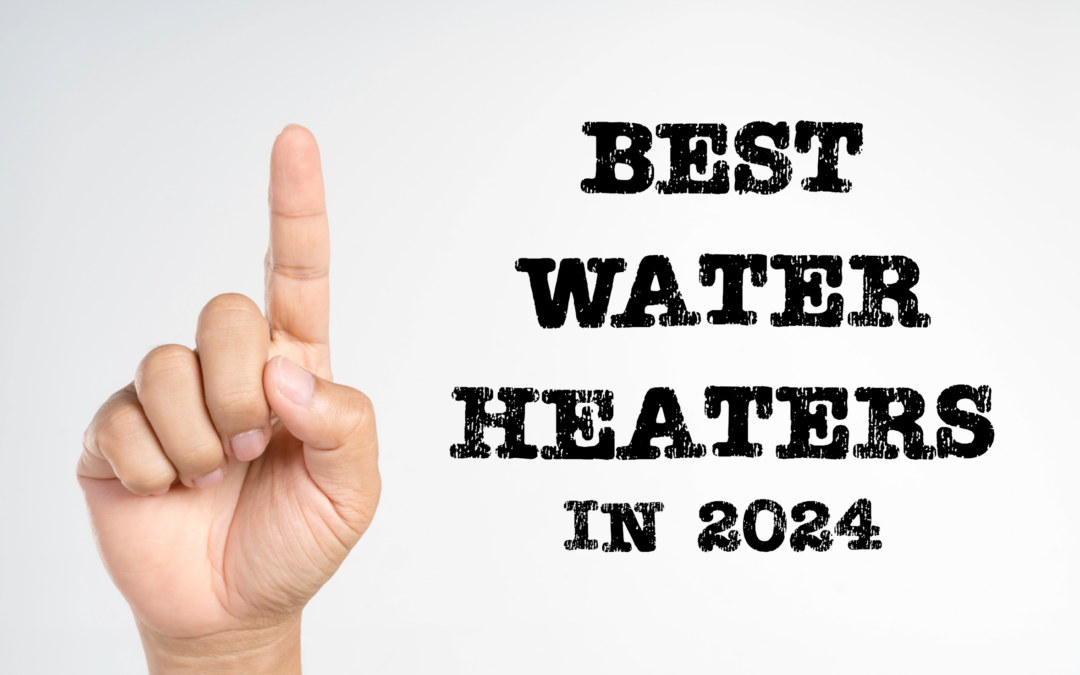A water heater leak is the last thing any homeowner wishes to face! Not only does it hike up your utility bills, but it can cause substantial water damage to your property. At Dayton Plumbing & Drain, we understand the hassle and stress this can cause. That’s why we’re here to provide expert insights on why your water heater might be leaking and how to tackle it efficiently.
Before we dive in, remember safety is paramount! Always ensure the water heater is turned off before beginning any troubleshooting.

Common Leak Cause 1: Loose Hot/Cold Water Connection
One common cause of water heater leaks is a loosened connection on the hot or cold water inlet and outlet pipes. With regular use and temperature fluctuations, these connections can loosen, resulting in water seepage. This often leads to minor puddles around the heater or a slow drip from the pipes.
To troubleshoot, first examine the heater’s top connections. If you discover water or moisture, it likely indicates a loosened connection. Although, simply tightening it with a wrench may resolve the issue. However, be cautious not to overtighten, as this could cause further damage.
Common Leak Cause 2: Faulty Pressure Relief Valve
A malfunctioning pressure relief valve can often lead to water heater leaks. This essential component is designed to release excess pressure within the tank. When defective, it may allow water to escape, indicating high tank pressure and posing a serious risk of the tank bursting.
To determine if the valve is the issue, carefully lift its lever. If it’s functioning correctly, water will flow out. However, if it continues to leak after you release it, you may need to consider replacing it.
Common Leak Cause 3: Defective Temperature & Pressure Valve
Similarly, the temperature and pressure (T&P) relief valve can cause leaks. If the T&P valve is leaking, it signals high water temperature or excessive tank pressure, both of which require immediate attention.
To effectively address this issue, inspect the area around the valve for signs of water. If you find it wet, it may be necessary to replace the valve to maintain optimal function and prevent further complications.
Common Leak Cause 4: Leaking Inlet Valve
Lastly, a damaged or improperly sealed inlet valve, controlling cold water flow into the water heater, could lead to a water heater leak. A faulty inlet valve usually leads to water accumulation around the heater’s base.
To address this issue, examine the inlet valve for any signs of damage or wear. You may need to tighten or replace the valve to ensure proper function.
When to Consult a Professional Plumber:
If you’ve tried all the troubleshooting methods and your water heater is still leaking, it’s time to call in the professionals. Some issues are too complex or unsafe for DIY repair. Our expert plumbers can accurately diagnose the problem and offer a lasting solution, whether it’s part replacement, internal tank repair, or recommending a new water heater. Don’t risk it—let our team handle it for you efficiently and safely.

A water heater leak can lead to stress and damage if not handled promptly. Understanding common causes of leak and troubleshooting steps is key to DIY resolution. However, please feel free to contact us if the problem persists.
Our professional team is always ready to provide reliable help to keep your home safe and comfortable. With a wide range of home services, our expertise ensures your home is in the best hands. Give us a call for all your needs and experience the industry’s finest solutions.
Call Dayton Plumbing & Drain today at (937) 705-5294 or schedule an appointment online now by clicking here!






